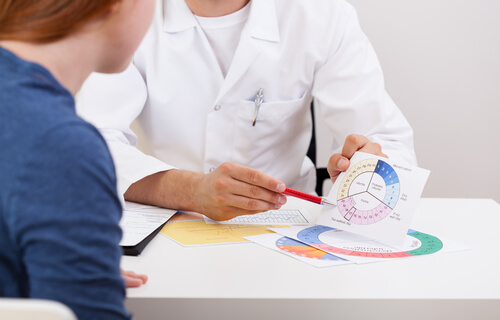
The symptoms you may be experiencing due to an onset of early menopause are almost identical to those that you would experience in menopause at the average age of around 51, although with an early onset the symptoms can be more obvious. It is usually impossible to reverse the process, but it can be treated.
It is possible to get tested and therefore receive a diagnosis on whether you are going through early menopause. If you are experiencing some of the symptoms mentioned here, then you should ask your doctor about it as the first step. This usually involves a physical examination and a blood test which will attempt to find out if it’s something else such as an unknown pregnancy or thyroid issues.
The causes which contribute to a woman having premature menopause will vary from person to person but it is usually a simple case of genetics. It can also be caused by an illness or even some medical treatments such as radiation therapy.
1. Irregular Periods
If you are experiencing wild fluctuations in your monthly period at the age of 40 or younger, this can often be a sign indicating the onset of early menopause. These irregularities could take a number of different forms. For example, you could find that your regular monthly periods are now coming much closer together, or much further apart. In either case, this is due to a change in hormone levels because estrogen is responsible for thickening the uterus lining.
This irregularity normally begins from the age of about 45 to 55, so if you are experiencing it before this age then you should get it checked out with your doctor. However, in rare cases, some women will enter menopause without having any irregularities at all with their periods. At a certain point, your periods will just completely stop, and this is generally considered to be the time at which you are officially menopausal.


